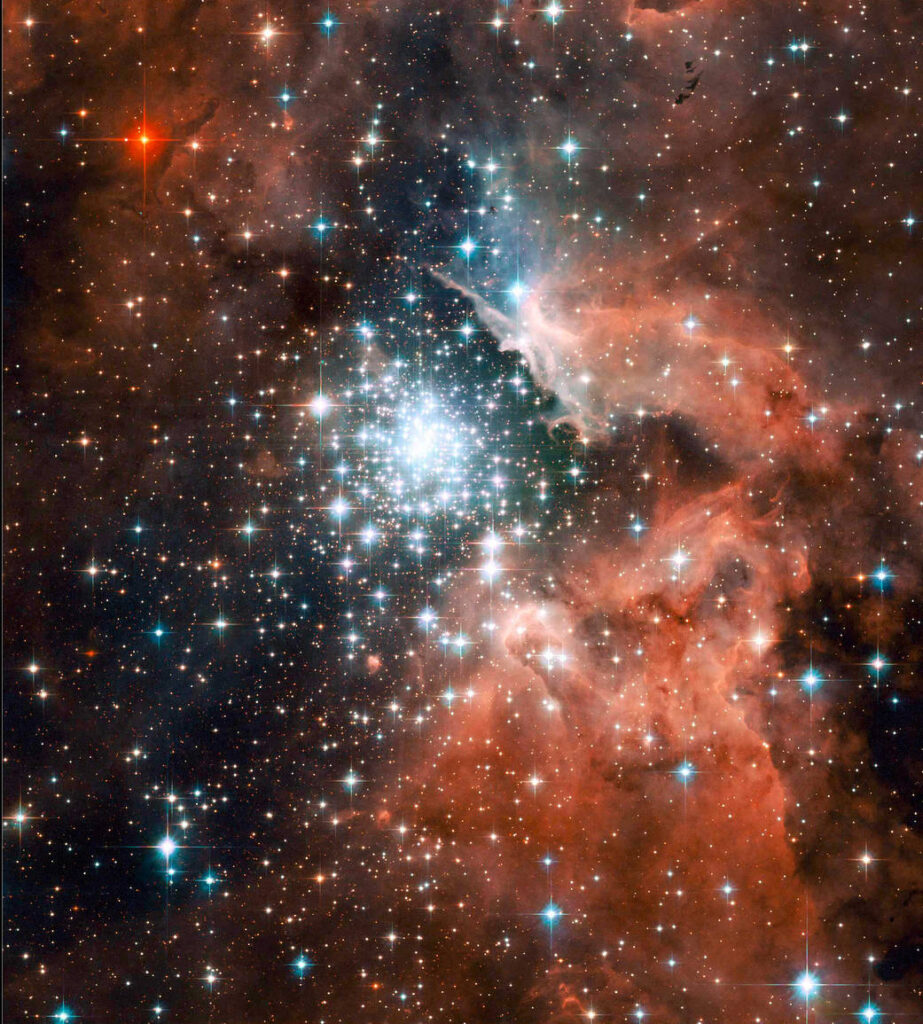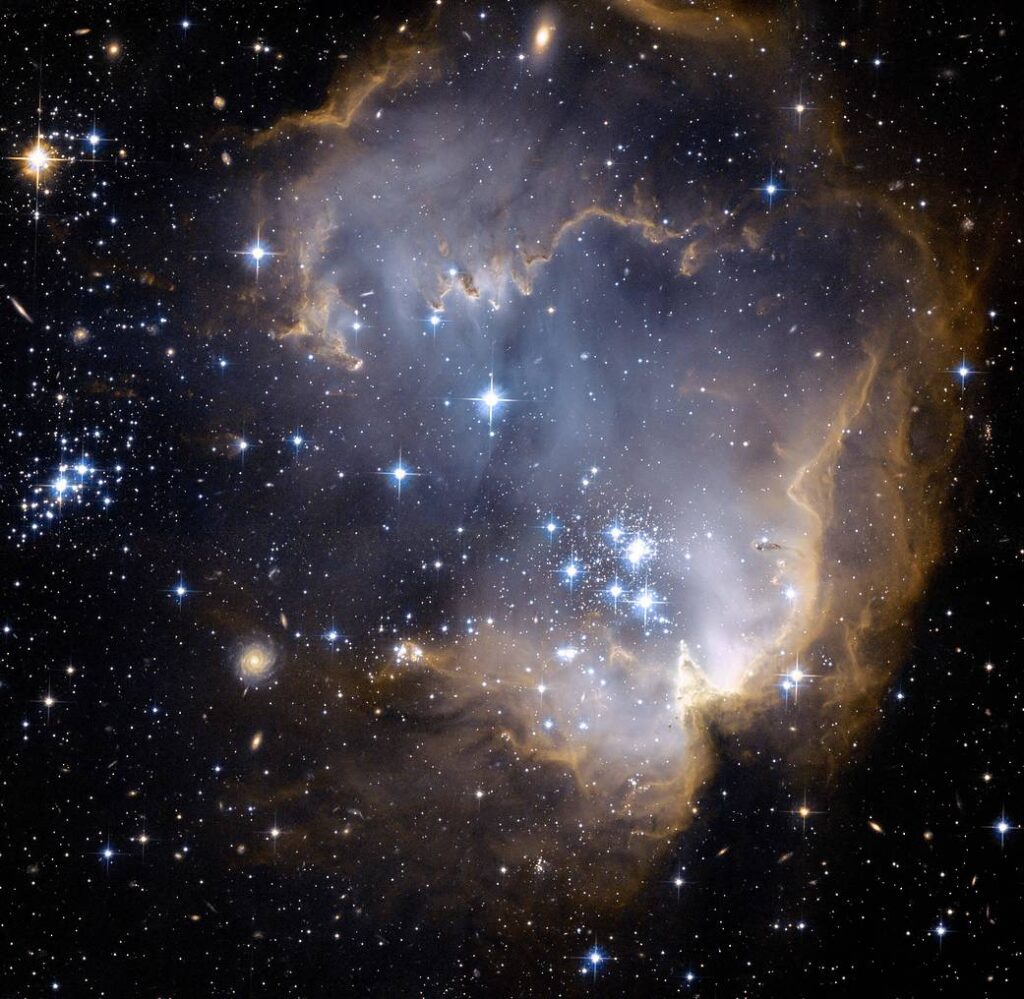Distances in space
The space beyond Earth is so incredibly vast that units of measure which are convenient for us in our everyday lives can become GIGANTIC. Distances between the planets, and especially between the stars, can become so big when expressed in miles and kilometers that they’re unwieldy. So for cosmic distances, we switch to whole other types of units: astronomical units, light years and parsecs.
Astronomical units, abbreviated AU, are a useful unit of measure within our solar system. One AU is the distance from the Sun to Earth’s orbit, which is about 93 million miles (150 million kilometers). When measured in astronomical units, the 886,000,000-mile (1,400,000,000-kilometer) distance from the Sun to Saturn’s orbit, is a much more manageable 9.5 AU. So astronomical units are a great way to compress truly astronomical numbers to a more manageable size.
Astronomical units also make it easy to think about distances between solar system objects. They make it easy to see that Jupiter orbits five times farther from the Sun than Earth, and that Saturn is twice as far from the Sun as Jupiter. (This is because, technically, you’re expressing every distance as a ratio of the distance from Earth to the Sun. Convenient!)https://www.youtube.com/embed/MX3PIkbTQwQThis animated video illustrates how far a light second, minute and year are. Credit: NASA-JPL-Caltech
For much greater distances — interstellar distances — astronomers use light years. A light year is the distance a photon of light travels in one year, which is about 6 trillion miles (9 trillion kilometers, or 63,000 AU). Put another way, a light year is how far you’d travel in a year if you could travel at the speed of light, which is 186,000 miles (300,000 kilometers) per second. (By the way, you can’t travel at the speed of light, as far as we know, but that’s a whole other story…) Like AU, light years make astronomical distances more manageable. For example, the nearest star system to ours is the triple star system of Alpha Centauri, at about 4.3 light years away. That’s a more manageable number than 25 trillion miles, 40 trillion kilometers or 272,000 AU.
Light years also provide some helpful perspective on solar system distances: the Sun is about 8 light minutes from Earth. (And yes, there are also light seconds!) And because light from objects travels at light speed, when you see the Sun, or Jupiter or a distant star, you’re seeing it as it was when the light left it, be that 8 minutes, tens of minutes or 4.3 years ago. And this is fundamental to the idea that when we’re looking farther out into space, we’re seeing farther back in time. (Think about it: you’re seeing all the stars in the sky at different times in history — some a few years ago, others hundreds of years ago — all at the same time!)
Finally, parsecs. This is the unit used when the number of light years between objects climbs into the high thousands or millions. One parsec is 3.26 light years. The origin of this unit of measure is a little more complicated, but it’s related to how astronomers measure widths in the sky. Astronomers use „megaparsecs“ — a megaparsec is 1 million parsecs — for intergalactic distances, or the scale of distances between the galaxies.
And at the point when distances between galaxies become so epic that even megaparsecs get unwieldy, astronomers talk about distances in terms of how much a galaxy’s light has been shifted toward longer, redder wavelengths by the expansion of the universe — a measure known as „redshift.“ Now that’sastronomical.
-https://solarsystem.nasa.gov/news/1230/cosmic-distances/ (the source, I just copied it)
It just seems interesting

A poem I wrote about meaning of life
(Because the fact that we are so small feels strange and makes me realise the meaninglessness of humanity and stuff I don’t know)
What's the meaning of living Why are we here? What's the reason of being? It's our biggest fear We created gods and everything Just to have faith, to feel better We believe that up there is something Someone, who would make our lives matte But what if there in no-one up there What if we're just an accident There is no-one to care We're just a random content In this whole timespace What if we're nothing Earth is just a random place What' the meaning of living

Okay, this is just a random topic, because I have no idea what to write about, tried to make it a little bit interesting I don’t know just yeah
